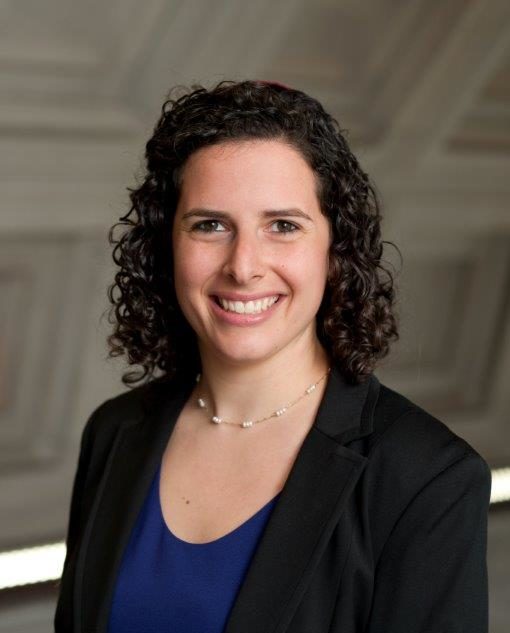As a rabbi, I sometimes mark productivity by how my body feels at the end of the day, and most specifically, how my voice feels. If it was a day full of teaching, meetings, and conversations, my voice might be strained, and I’m probably pretty thirsty. If I didn’t feel it in my throat, it was a likely a day of responding to emails, or, better yet, a day spent listening more than talking.
Like many, I spent the weeks leading up to the election canvassing to get out the vote. I wasn’t sure how I’d “feel it” at the end of the day. Would my voice feel hoarse from conversation? Would my feet hurt from walking the streets? I was surprised when I got in the car at the end of the day that I felt it most in my hands. My knuckles were slightly bruised from knocking on doors, my fingers dirty with smudged ink, dust, and paint residue, and slightly cramped from writing notes.
Sometimes our voices tell our stories. Other times, it’s our hands. Isaac found himself needing to decide which story was true in Parashat Toldot. At his mother’s behest, Jacob takes the place of his brother Esau, in order to receive Isaac’s blessing, reserved for the first-born son. Rebekah prepares a dish, Jacob brings it in, arms covered in animal skins to replicate the hairy arms of his brother. Isaac, nearing blindness in his old age, cannot discern which son is by his side, but does know that something is not right.
He wonders to himself, after both hearing and touching his son, “Hakol kol Yaakov, vehayadayim yidey Esav—The voice is the voice of Jacob, yet the hands are the hands of Esau.” (Genesis 27:22) So, which brother is it? The commentary Keli Yakar offers a number of possibilities. After suggesting the (unlikely) intrusion of a third party, a stranger impersonating both of them, Isaac decides to trust his judgment. According to the Keli Yakar, “In the end, Isaac used common sense to discern that hands are a stronger determinant than the voice.” He continues on to explain that if Esau were to speak in the language of supplication (tachanunim, apparently mimicking Jacob’s demeanor), he would sound very much like Jacob. However, it would be far more difficult for Jacob or anyone else to make their hands feel hairy like Esau’s, let alone prepare a meal of hunted meat that was Esau’s specialty.
While Isaac ultimately judged the situation incorrectly (and it is crucial to acknowledge that this story is driven by Jacob’s exploitation of his father’s disability), there was wisdom to his thought process. He reasoned: Esau could speak like Jacob much more easily than Jacob could replicate skillful work of Esau’s hands. For Isaac, it is easier to impersonate the words of another over the deeds of another; hands speak louder than voice.
While our voices are usually a strong indicator of our beliefs, there are times when we need to rely on our hands to verify who and what we truly stand for. In the weeks since the presidential election, there has been much raising of voices; in protests, in the sharing of think-pieces, in signing petitions, and more. Many are awakening and stretching their vocal chords in ways they had not previously. That should not be diminished. But if there is ever a mismatch between what we say and what we do, we may find ourselves judged by the latter.
As we advocate for ourselves and for others, there are moments when we are called upon to verify our identities by transforming words into action. Yes, wear safety pins, and also be prepared to stand with anyone experiencing harassment, discrimination, or deportation. Speak out on social media, and also call your Congresspeople regularly.
In an oft-cited Talmudic debate (Kiddushin 40b), Rabbi Tarfon and Rabbi Akiva discuss whether study or action is greater. While Rabbi Tarfon prefers action, Rabbi Akiva elevates study, for “it leads to action.” Ideally, the work of our hands is in fact the extension of work of the ideas we consume and share. Whether it’s standing together with Muslims if a registry is enforced, providing sanctuary to immigrants, or making donations to maintain reproductive rights, we are called upon to do away with any inconsistency between what we say and what we do. “Hakol kol Yaakov, vehayadayim yidey Esav.” Let us speak out authentically as ourselves, and let there be no doubt that our hands will do the same.
Rabbi Ariella Rosen was ordained by the Jewish Theological Seminary in 2015, and currently serves Temple Adath Israel in Merion Station, PA.


